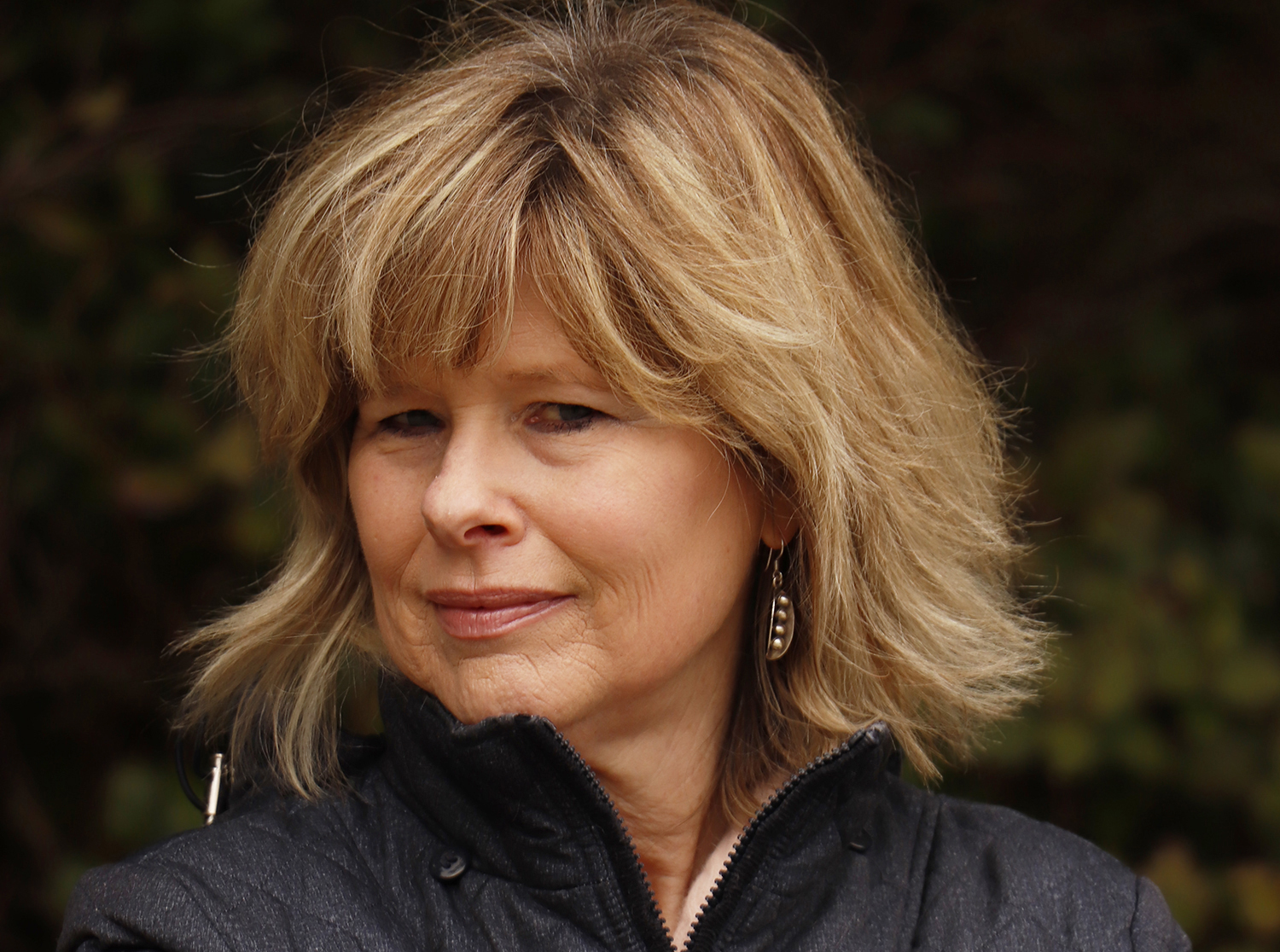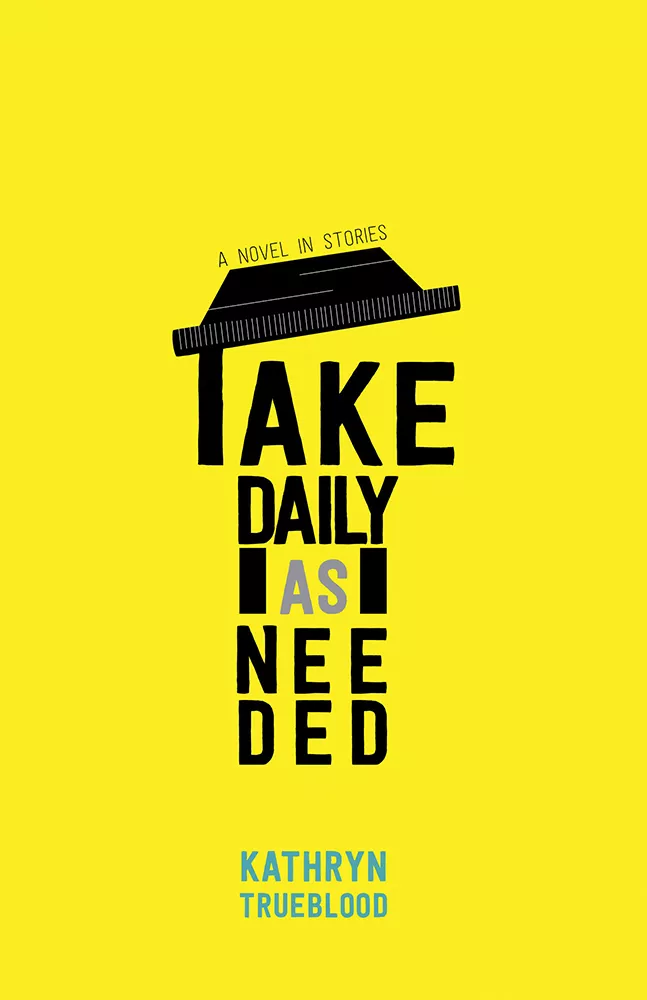Professor of English Kate Trueblood’s newest novel, “Take Daily as Needed,” (University of New Mexico Press) follows its protagonist, Maeve Beaufort, as she navigates an intricate and at times oppressive maze of competing demands, from a daughter who suffers from allergic reactions to nuts so severe that she can (and does) go into anaphylactic shock; a father who dances in and out of dementia, emerging from a funk long enough to purchase yet another big-ticket item that he doesn’t need and can’t afford; to her own wellness issues surrounding her struggle with Crohn’s disease and the at-times crushing weight of the needs of those around her.
Window magazine writer John Thompson recently sat down with Trueblood to talk to her about the book, how much of her own experiences went into Maeve’s story, and how we all, eventually, have to come to grips with living with the infirmity of our own bodies.
Maeve’s story in “Take Daily as Needed” feels very personal, that the places she has been and continues to discover in the book feel like emotional destinations it would be hard to describe if the writer hadn’t been there herself … is that the case? Are there a lot of your life experiences in Maeve?
Yes, each book I publish feels more personal than the last. The narrator of the novel, Maeve Beaufort, is a parent whose illness goes in and out of remission like mine. A friend’s death compelled me to start this book as did my own fear of illness. My friend had MS and vowed to live until her son graduated from high school. I had just been diagnosed with Crohn’s Disease. She constantly found humor in the absurdity of her situation and we shared that.
My relationship with my own children and as a teacher has caused me to reflect on the large number of children and teenagers out there who live with ill or disabled parents and have little to no support. Like the main character, Maeve, I have taken in kids who were kicked out, who ran away, or who were suicidal, and I have tried to get social services for them. I quickly learned we don’t really have a social safety net in this country.
I also wanted to write about the meltdown years when middle-aged women are likely to be taking care of their parents while they are still raising their kids. This was true for me. My father fell and received a traumatic brain injury, so I was trying to care for him as well.
Is it hard to write and describe difficult points of your own life and then see them being wrestled with by your own fictional characters?
No, it is actually a release for me, because it helps me see who I once was. I can put a frame around a particular part of my life, I can freeze the family in that frame and see how they are all interacting whereas in real life I was always in the middle of my life and muddling along. And then of course, there’s the moment where the character is no longer me, where I know what my character has to do and it may not be what I did, and perhaps that is cathartic as well.
“Take Daily” is a loosely connected series of stories about Maeve and her family; in the middle of the book is one story, “The No-Tell Hotel,” that won you the 2013 Goldenberg Prize in Fiction. What made you decide to go back to that story and use it as the basis for more stories about Maeve?
When my son was 17, I would go downstairs in the morning and count the pairs of shoes piled by the back door to figure out how many kids had spent the night on the floor of his room. That moment is captured in “The No-Tell Hotel.” I really wasn’t concerned if my house was overrun by teenagers because I was too sick. I was living the chaos narrative, and that story was true to my life. When you suffer the crisis of becoming ill, you have to get a whole set of instructions for living. But there’s this period where you have no history with the illness, no track record of recovering from flare-ups, and no trust that you will recover.
I began looking for fiction that featured sick mothers trying to raise kids, and I couldn’t find much, and I wondered who would want to read it besides me, but decided I didn’t care and wrote that story which was eventually selected by Jane Smiley for the Goldenberg Prize. “The No-Tell Hotel” stayed with me because it was a tribute to my friend who died, but also because its reception showed me that there was a place for this subject in the world. Later, I began to question my own attitudes, because really, there is no one who is untouched by illness, mental or physical.
A sense of connection and empathy run through all the stories in “Take Daily.” How do your students inspire you to be more empathetic?
I am just humbled by the pressures my students withstand to stay in school. I have been teaching for over 20 years, and I have seen many changes in that time. A lot of students do not have strong foundations to spring from. Their family problems are a reflection of the diminishment of social services and the transfer of wealth out of the lower and middle classes. Students come to me who can’t afford medical treatment; who can’t eat until their financial aid comes in; who are working way too many hours while trying to maintain a full-time load; students whose families are in crisis because of ill health, mental illness, addiction, or debt.
I feel it is my job to make students feel seen, heard, and cared about. I may be a writing teacher, but I am a storyteller first and I believe in the power stories have to bind us in community, to take down walls, and make us patient with each other’s pain. I try to bring deep listening and survival humor into the classroom with me.
Kathryn Trueblood has been awarded the Goldenberg Prize for Fiction and the Red Hen Press Short Story Award. She has taught at Western since 1991, and is the author of “The Baby Lottery” and “The Sperm Donor’s Daughter and Other Tales of Modern Family.”

